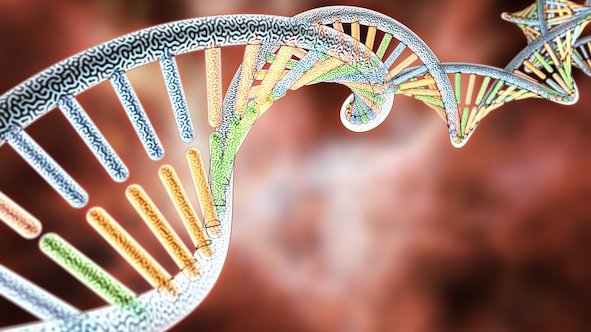Can you take control and make choices before cancer makes them for you?
November 25, 2021 | Thursday | Views | By Dr Vedam Ramprasad, CEO, Medgenome Labs
Policies and guidelines for the sector need to be outlined for higher adoption of genetic testing
Image Credit: Shutterstock
A WHO estimate in 2018 projected that one in 10 Indians will develop cancer during their lifetime and one in 15 will die of the disease. Ignorance isn’t bliss, especially with a 72 million rare disease population which makes it even more imperative to identify and diagnose at the right time. The role of genetic testing to identify or rule out a specific genetic or chromosomal condition is becoming increasingly important for rare disorders, cancer, cardiovascular diseases, and infectious diseases.
In India, with one out of 200 births having an incidence of chromosomal disorders, tests like non-invasive prenatal testing (NIPT) with its ability to screen the entire foetal genome and detect disease-causing genetic mutations with 99.9 per cent accuracy are now being recommended by many gynaecologists as a part of good pregnancy healthcare helping expectant parents to make informed decisions. With liquid biopsy, a simple blood test can detect relapse of cancer much earlier than conventional methods.
The pandemic also emphasised the importance of genomics with the emergence of new virus variants that would alter the susceptibility and response of the population to disease. In fact, when we talk of infectious diseases, tuberculosis needs a special mention, India is one of the top three countries with the largest number of multi-drug resistant TB cases that constitute 43 per cent of global cases. Quick sputum based genetic tests can identify more drug resistance markers – reported as well as a novel early on and enable better treatment as we move closer to the global target of ending TB by 2030.
The recent incidences of heart attacks among the younger population have put the spotlight on preventive wellness-based genomic testing to identify genetic predisposition to heart disease. Combined with the analysis of other risk factors these tests can help tailor specific nutritional and lifestyle choices and help in preventing a tragedy.
According to a study conducted on 2,000 patients between 2017 and 2019 by the Jayadeva Institute, Bengaluru, 30 per cent of young people who suffered heart attacks did not have any conventional risk factors such as high cholesterol, hypertension, etc. which highlights the importance of genetic testing even more. According to a recent study published by Mayo Clinic, almost 12 per cent of people who underwent predictive genomic testing learned that they had a hereditary risk for a health condition and may benefit from preventive care.
Most research studies have explored the relationship between disease and genes through a focus on European populations. The reference genomes created through various sequencing studies – which form the foundation of genetic interpretation and insights provided to patients and consumers - have also focused on such populations. This made them less useful for Asian populations.
However, over the last decade, many South Asian genome studies have leveraged the value of the data from South Asia’s population isolates and built reference databases specifically applicable to Asian populations making genetic tests more accurate and reliable. Specifically, India is a rich goldmine of genetic data with the caste system, social boundaries and practices like consanguineous marriages resulting in the inheritance of mutations within small population groups. There are several peer-reviewed evidence-based research studies published across international journals which are the basis of the development of most of the genetic tests in India. This is proof of the scientific advancements in this field in India.
Operational and technological advancements have also come a long way with most genetic tests now costing anywhere between Rs 3,000 - 20,000. The whole-genome can now be sequenced at Rs 60,000 -70,000. With the pandemic shifting our focus on health, this is a small price to pay for a lifetime of the value of the genetic data and insights. Unlike a few years back when samples were sent outside of India for testing, companies now conduct testing in-house with the same accuracy and quality. Very few of the genetic testing labs are CAP/NABL accredited.
While we are seeing the benefits of genetic testing, there are still areas where we need to work harder. Policies and guidelines for the sector need to be outlined for higher adoption of genetic testing. Insurance players need to step up to overcome the affordability challenge for those who are still struggling for primary healthcare facilities. Awareness among the prescriber community and the patients will benefit from a strong public-private partnership effort with significant contributions from academia as well. Together we can drive this change for the benefits of genetic data to translate into managing healthcare in a better way.
Dr Vedam Ramprasad, CEO, Medgenome Labs, Bengaluru









